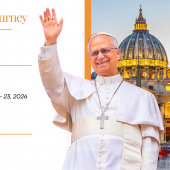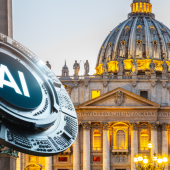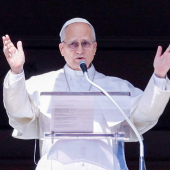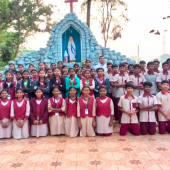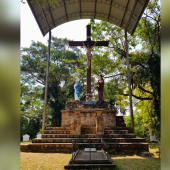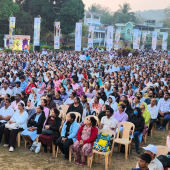Pope Leo XIV: A Bridge Builder
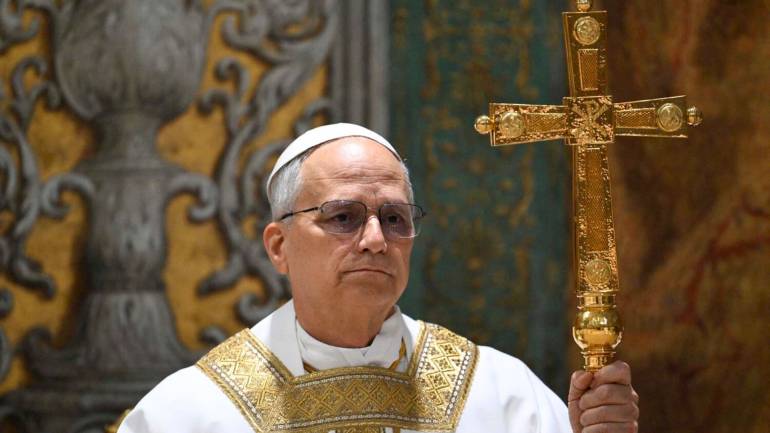
Neither liberals nor conservatives can fully claim him — which may be what we need: a pope who challenges everyone’s comfortable assumptions.
The white smoke has cleared, and history has been made. As a Catholic who has lived through two papacies, I find myself both surprised and moved by the election of Cardinal Robert Francis Prevost as Pope Leo XIV. His rise from Chicago’s south suburbs to St. Peter’s Chair represents something profound for our fractured Church and divided world — a bridge-builder whose life embodies the healing we desperately need.
What strikes me most about our new pope is not just that he’s American-born — though this is undeniably historic — but that he transcends simple national identity. Here stands a man formed in Chicago’s working-class neighborhoods who spent decades in Peru’s poorest communities, ultimately becoming a citizen there. In an age where narrow nationalistic rhetoric threatens to tear apart both Church and society, Leo XIV’s dual citizenship offers a powerful counter-narrative.
The cardinals’ choice reveals their wisdom. They did not select a European traditionalist to reverse Francis’s reforms, nor a liberal firebrand to accelerate them. Instead, they chose a man whose life speaks to the Church’s most urgent mission: reaching across divides. As bishop in Chiclayo, Prevost did not merely preach from comfortable pulpits — he walked dusty streets, learned indigenous languages, and built parishes where the poor found spiritual refuge and practical help.
Prevost possesses a rare combination of intellectual depth and pastoral warmth. A mathematician by training who speaks five languages communicates without pretension. In Peru, he spent hours listening to villagers’ concerns, his attention never wavering. He has the mind of a scholar but the heart of a parish priest.
This balance feels especially vital now. The sexual abuse crisis has shattered trust, polarization has invaded our pews, and many Catholics wonder if unity is even possible. Leo XIV’s Augustinian formation — centered on community and harmony — offers a path forward. His episcopal motto, “In the One, we are one,” isn’t mere sentiment but the foundation of his approach to leadership.
What excites me most about this papacy is its potential to heal American Catholicism’s deep divisions. Unlike many American religious leaders, Prevost resists easy categorization. His support for Francis’s environmental advocacy and migrant outreach reflects progressive priorities, while his traditional stance on women’s ordination and cautious approach to LGBTQ+ issues aligns with conservatives. Neither side can fully claim him — which may be precisely what we need: a pope who challenges everyone’s assumptions.
His choice of papal name speaks volumes. Leo XIII’s landmark encyclical Rerum Novarum defended workers’ rights while affirming private property — finding a middle ground between unfettered capitalism and socialism. Leo XIV seems poised to continue this tradition of nuanced social teaching that transcends political tribes.
Having witnessed his first appearance on the balcony on television, I was struck by his humility. Unlike some who might revel in newfound power, Pope Leo XIV appeared almost overwhelmed by responsibility. When he switched from formal Italian to Spanish to address Peru’s faithful, his voice had the warmth of someone speaking to family. Here was a man who understood that authority in the Church means service, not dominance.
The challenges ahead are immense: a Church hemorrhaging young members in the West while proliferating in the Global South; climate change threatening the most vulnerable; technological advances raising profound ethical questions. Can a Chicago-born, Peru-shaped pontiff navigate these complexities?
Critics have already begun dismissing him as “Francis 2.0,” but this misses the point. Yes, he will likely continue Francis’s focus on the peripheries — but with his distinct emphases. His extensive experience in religious order governance and Vatican administration gives him tools his predecessor sometimes lacked. Where Francis was prophetic, Leo XIV may prove pragmatic — translating vision into sustainable reforms.
Perhaps what moves me most is the journey of Leo XIV — from an altar boy at St. Mary’s Parish to the Supreme Pontiff. It is not a career advancement but a life responding to a genuine calling. When he asked the crowd for prayers, the tremble in his voice revealed not political calculation but genuine humility.
As Leo XIV begins his pontificate, I see in him something our divided Church desperately needs: a leader whose identity transcends borders, whose experience spans cultures, and whose heart remains with the forgotten. Chicago’s son, Peru’s adopted child, and now the world’s spiritual father offers not simple answers but a compelling way of being Catholic in our complex world — building bridges rather than walls, listening before speaking, and finding unity in Christ alone.
Radio Veritas Asia (RVA), a media platform of the Catholic Church, aims to share Christ. RVA started in 1969 as a continental Catholic radio station to serve Asian countries in their respective local language, thus earning the tag “the Voice of Asian Christianity.” Responding to the emerging context, RVA embraced media platforms to connect with the global Asian audience via its 21 language websites and various social media platforms.









